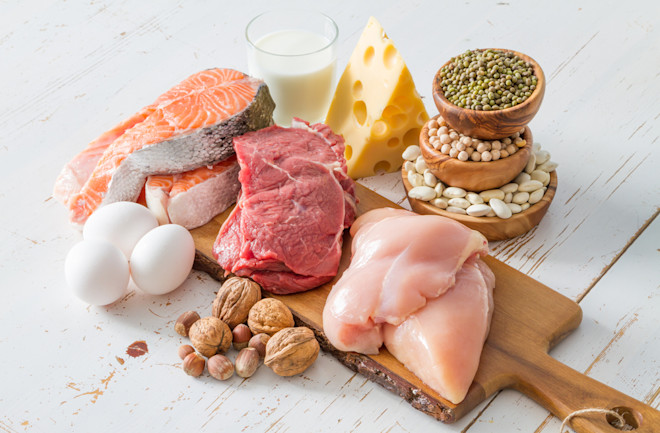Harnessing the Power of Protein
How a High-Protein Diet Facilitates Fat Loss and Muscle Gain Simultaneously
In the realm of health and fitness, the quest for achieving a leaner, more muscular physique while simultaneously shedding excess body fat is a common goal. While this might seem like a daunting task, one dietary approach has emerged as a powerful ally in this endeavor: the high-protein diet. By prioritizing protein intake, individuals can effectively support fat loss while promoting muscle growth and preservation. Let's delve into why and how a high-protein diet can facilitate this dual process:
1. Protein's Thermic Effect: One of the key mechanisms by which a high-protein diet aids in fat loss is through its thermic effect, also known as the thermic effect of food (TEF). Protein has the highest thermic effect among the three macronutrients—protein, carbohydrates, and fats—meaning that the body expends more energy (calories) digesting and metabolizing protein compared to carbohydrates and fats. This increased energy expenditure can contribute to a higher overall calorie burn, facilitating fat loss over time.
2. Satiety and Appetite Regulation: Another advantage of protein is its ability to promote feelings of fullness and satiety, which can help control appetite and reduce overall calorie intake. Studies have shown that high-protein meals can lead to greater feelings of fullness and reduced hunger compared to meals higher in carbohydrates or fats. By keeping hunger at bay, a high-protein diet makes it easier to adhere to a calorie-controlled eating plan, supporting fat loss efforts.
3. Muscle Protein Synthesis: In addition to its role in fat loss, protein is also crucial for muscle growth and repair. Consuming an adequate amount of protein provides the building blocks (amino acids) necessary for muscle protein synthesis, the process by which new muscle tissue is formed. By stimulating muscle protein synthesis, a high-protein diet helps to preserve existing muscle mass and may even promote muscle growth, particularly when combined with resistance training.
4. Preserving Lean Body Mass During Caloric Deficits: When aiming to lose fat, individuals often create a calorie deficit by consuming fewer calories than they expend through a combination of diet and exercise. However, this caloric deficit can sometimes lead to muscle loss if protein intake is insufficient. By prioritizing protein consumption, individuals can help mitigate muscle loss during periods of calorie restriction, preserving their hard-earned muscle mass while focusing on fat loss.
5. Timing and Distribution: To maximize the benefits of a high-protein diet for both fat loss and muscle gain, it's important to consider the timing and distribution of protein intake throughout the day. Aim to include a source of protein with each meal and snack to provide a steady supply of amino acids to support muscle protein synthesis and promote satiety. Additionally, consuming a serving of protein following resistance training can enhance muscle recovery and growth. In conclusion, a high-protein diet serves as a powerful tool for individuals looking to simultaneously lose fat and gain muscle. By harnessing the thermic effect of protein, regulating appetite, supporting muscle protein synthesis, and preserving lean body mass during caloric deficits, individuals can achieve their body composition goals more effectively. Whether you're aiming to sculpt a lean physique, improve athletic performance, or enhance overall health, prioritizing protein intake can be a game-changer on your fitness journey. Remember to combine a high-protein diet with regular exercise, adequate hydration, and sufficient rest for optimal results.
In conclusion, a high-protein diet serves as a powerful tool for individuals looking to simultaneously lose fat and gain muscle. By harnessing the thermic effect of protein, regulating appetite, supporting muscle protein synthesis, and preserving lean body mass during caloric deficits, individuals can achieve their body composition goals more effectively. Whether you're aiming to sculpt a lean physique, improve athletic performance, or enhance overall health, prioritizing protein intake can be a game-changer on your fitness journey. Remember to combine a high-protein diet with regular exercise, adequate hydration, and sufficient rest for optimal results.
Thank you for reading!
Find useful articles to read: HERE































